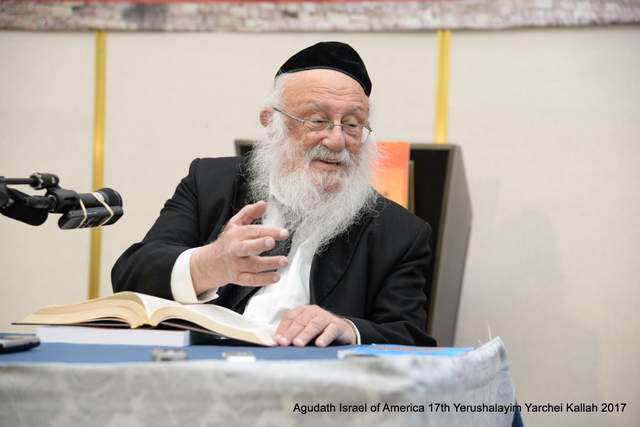| | NEWS
Chinuch Advice from HaRav Berel Povarsky
By Yechiel Sever
HaRav Boruch Dov Povarsky

"If the rebbi does not feel like a father to his students,
he is not fulfilling his mission, nor is the father
discharging his educational obligation to his children. It
is not merely an auxiliary advantage for a rebbi to regard
his students as his children, but a very requirement and it
is our duty to see that this prerequisite is fully
fulfilled." These words were spoken by HaRav Boruch Dov
Povarsky, Rosh Yeshivas Ponevizh and member of the Moetzes
Gedolei HaTorah, to a delegration of rabbonim from the
Chinuch Committee who came to his home in anticipation of
the 14th Convention, headed by Torah leaders and with the
participation of hundreds of mechanchim and principals, to
take place from Tuesday to Thursday, the 16th to the 18th of
Shevat in the Nir Etzyon convention center for three
intensive days of interspection, direction and guidance on
various burning topical educational issues.
He aroused his visitors in anticipation of the event. "In
past conventions of the Chinuch Committee, we spoke about
chinuch as being a mitzvah from the Torah, requiring
intensive study. There are many mitzvos incumbent on the
father, such as circumcising his son and redeeming his
firstborn son. In cases where the father is unable to
circumcise his son, the Beis Din is required to do so
instead, since this particular mitzvah was commanded to all
of Jewry, but certainly, the obligation falls primarily on
the father. Why is this any different regarding education,
where beis din might be obligated to step in if the father
is delinquent?
"The explanation is that chinuch is a duty which falls only
on the father; it is impossible otherwise. A boy does not
receive his education from just anybody, only from his
father who loves him `as a father shows compassion to his
sons.' [One might maintain that] the Torah commands us to
love our fellow man like oneself but here, such love is not
sufficient in the case of chinuch. The love of a father is
still different, which is why the obligation was conferred
upon him. We see thus that successful education can be
achieved only by one who loves the child, who is close to
him and knows him thoroughly. Otherwise, the chinuch will
not be successful.
|




